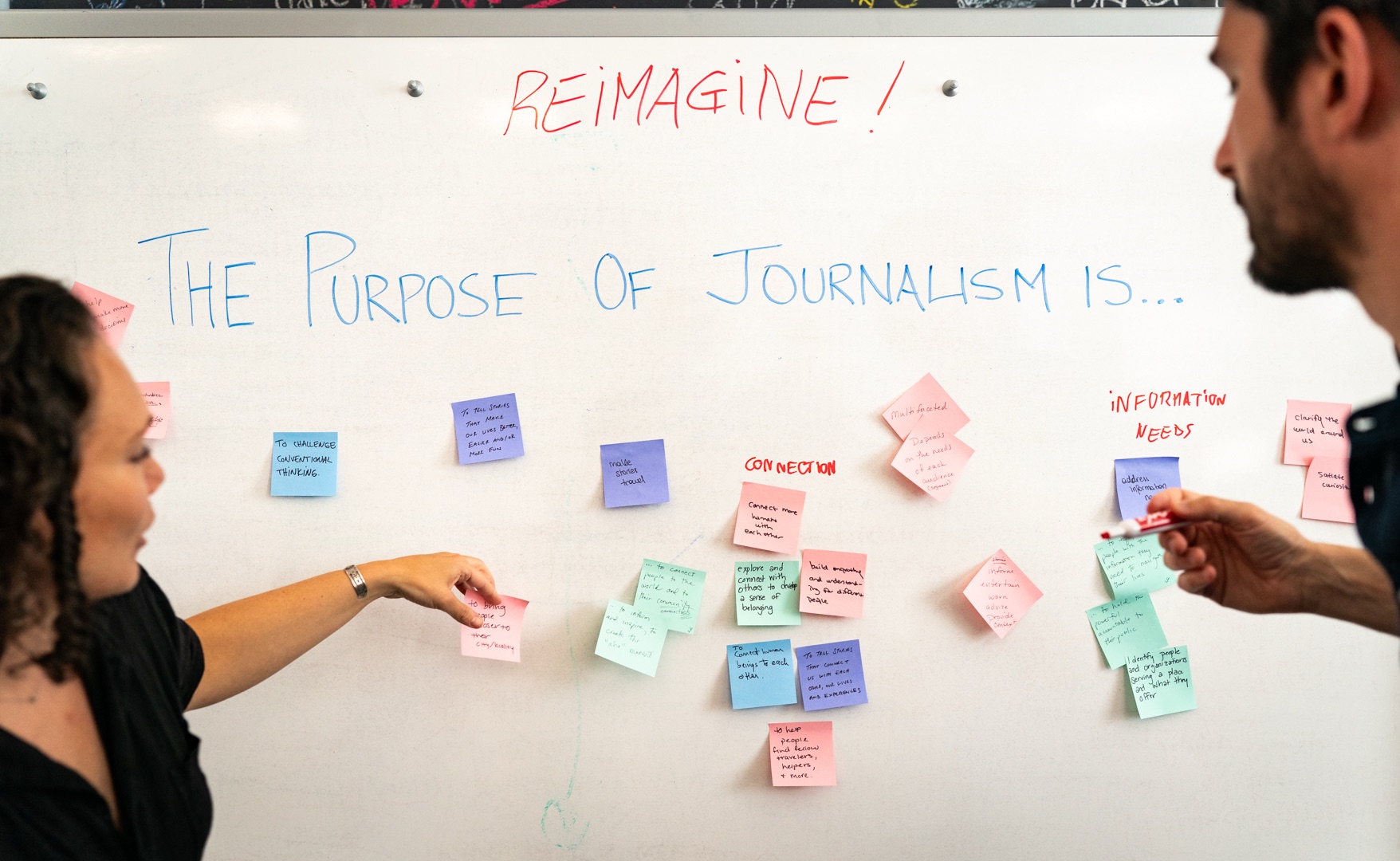On Wednesday night I was en route to London and getting nervous.
“I’ve never attended a conference or a festival before,” I told Knight Lab’s Joe Germuska as we sat at Chicago's O’Hare International Airport just two days before MozFest kicked off.
Joe assured me that MozFest was a good one, but I still had nerves.
It wasn’t just that it was my first festival. I'd also had a proposal to facilitate a session accepted, but I didn’t quite know what it meant to do that in front of an assortment of five to 50 people for three hours. Plus, professor Rich Gordon and I had submitted the proposal together, but Rich wasn’t going to be there.
The idea was to discuss telling stories on the Web with social network analysis and visualization. During my research leading up to MozFest (which truly lasted most of the summer) one thing became clear: the topic is nowhere near ready to be served up on a silver plate. It’s true I have some experience with analyzing relationships between people, but I’m still just a college senior; what do I have to say to a bunch of computer scientists about anything?
I prepared some material to help attendees analyze their Facebook networks and to discuss data, methods, and results. But I felt that I wasn’t as ready as I could be.
At the reception Friday morning, I met with other facilitators on the Science track. We introduced ourselves and Mozilla’s Head of Science Kaitlin Thaney went over some logistics. During this, I would start conversations about sessions, hoping to gauge the level of preparation at the festival. Now the Science track at this Festival was stacked, and I was sharing the stage with university professors, published authors, and people who smash particles for fun.
What hit me during those conversations and the organized chaos that began that night, was that while this wasn’t anything like a conference, it wasn’t even a festival. Festivals mostly showcase prepared works of art or science. This was a full-on party, where you could show up with something or nothing, and still contribute so much to the experience.
There were some bumps. My session wasn’t exactly PC-friendly, which meant that some attendees paired up with Mac users. But at its height, more than a dozen people were there Facebook stalking with the Python network analysis library NetworkX and the JavaScript graph visualization library Sigma.js. Some tweeted about my session and some published the results on their blogs. None of it would have gone as well as it did if it weren’t for the small bits of help I got from my session’s participants when something went wrong. And it surely wouldn’t have been a success if it weren’t for the attention, enthusiasm, and presence the participants brought for all three hours thanks to the genuinely fun environment MozFest fosters.
If you’re interested, check out the session’s etherpad.
About the author





